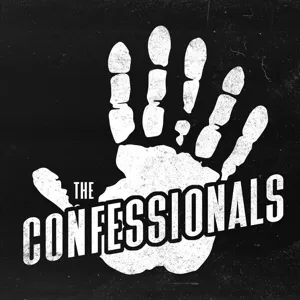Podcast Summary
The importance of curiosity and humility in leadership: Embracing curiosity and humility can lead to better learning and stronger relationships, while striving for unshakable conviction can hinder growth and effective leadership.
Certainty can be a hindrance to growth and effective leadership. As Adam Grant, an organizational psychologist, shared on Hidden Brain, our reluctance to question our beliefs and challenge others can stem from our personality traits. Grant, who was once known as "Mr. Facts" as a child due to his knowledge and stubbornness, now recognizes the importance of curiosity and humility. Agreeableness, a trait associated with warmth and harmony, can also have its downsides, as it can make us hesitant to challenge others or speak up when necessary. The ability to admit when we're wrong and engage in open dialogue can lead to better learning and stronger relationships. So, instead of striving for unshakable conviction, let's embrace curiosity and the magic that comes from admitting what we don't know.
Agreeableness and Instincts in Leadership: Agreeable leaders may be less effective due to reluctance to challenge others. Relying on first instincts can lead to fallacious decisions. Adaptability and openness to new ideas are essential for effective leadership.
Being agreeable and relying too heavily on first instincts can hinder effective leadership and decision-making. The research shows that agreeable people can be less effective at leading organizations and teams due to their tendency to be too nice and not challenge others enough. Additionally, relying on first instincts can lead to the first instinct fallacy, where our initial thoughts may not be the best or most relevant solutions to the problem at hand. The fear of regret also plays a role in our reluctance to change our minds, even when presented with new evidence. Companies, like Blackberry, can suffer when leaders are unwilling to adapt and rethink their approach, as seen with their failure to embrace touchscreens and the rise of smartphones. It's crucial to be open to new ideas, challenge ourselves, and test our assumptions to make the best decisions.
Distinguishing between relationship conflict and task conflict: Recognize task conflict as a valuable opportunity for intellectual growth and progress, rather than letting it escalate into emotional, personal relationship conflict.
Being open to rethinking our beliefs and positions is crucial for personal, professional, and political success. However, our reluctance to do so can have significant consequences, as seen in historical examples like NASA's Challenger disaster, the U.S. wars in Iraq and Vietnam, and even in everyday situations. Psychologist Adam Grant explains that there are two types of conflict: relationship conflict and task conflict. The former is emotional and personal, while the latter is intellectual and about debating different opinions to get to the truth. The soup nazi from Seinfeld illustrates the problem of task conflict turning into relationship conflict, where any disagreement or deviation from the rules is taken personally. To overcome this, it's essential to distinguish between the two types of conflict and embrace task conflict as a means of intellectual growth and progress.
Embracing Conflict for Team Success: Conflict is natural and necessary for team success, but effective handling is crucial. Task conflicts lead to creative solutions, while relationship conflicts can hinder focus. Understanding the difference and fostering productive debates can lead to a common mission alignment.
Conflict is a natural and necessary part of building successful teams and making wise decisions. However, the way teams handle conflict, particularly task conflict versus relationship conflict, can significantly impact their performance. While some assume that less conflict is better, researchers argue that the absence of conflict is actually a sign of apathy and lack of engagement. In fact, task conflicts can lead to creative solutions and diverse perspectives. However, when relationship conflicts arise, they can lead to people shutting down and taking disagreements personally, making it difficult to focus on the substance of the issue. Additionally, people sometimes confuse their beliefs with their values, making it hard to admit when they are wrong. To build effective teams, it's essential to embrace conflict as a means of fostering productive debates and aligning around a common mission.
The importance of being open-minded in professional settings: Strive for growth and learning, not attachment to wrong convictions. Be open-minded, communicate effectively, and learn from the best evidence.
Our beliefs and opinions should not define our identity, especially in professional settings. Instead, it's essential to be open-minded, learn from the best evidence, and uphold core values. Communication is key, and being able to disagree without being disagreeable is crucial for productive relationships. However, our inner "totalitarian ego" can often prevent us from accepting useful feedback or challenging our convictions, leading us to cling to our wrong beliefs and fortify them further. Identity and stereotypes can also hinder our ability to question dearly held beliefs and rethink our views, as they create loyalties to different groups and tribes. Ultimately, it's essential to be aware of these tendencies and strive for growth and learning, rather than staying attached to our wrong convictions.
The influence of relationships and group identities on our decisions: Adopt a reflective and adaptable mindset to challenge deeply held beliefs and discover new truths, avoiding personal conflict during productive arguments.
Our relationships and group identities significantly influence our decisions and opinions. We often adopt the roles of preachers, prosecutors, or politicians, which hinder our ability to reconsider our views. Preachers defend sacred beliefs, prosecutors aim to prove others wrong, and politicians adjust beliefs to win approval. However, the Wright brothers, who invented the first successful airplane, provide an example of productive conflict. They argued extensively while inventing their airplane, but managed to keep it from spilling into personal conflict. They saw arguments as opportunities to clarify thoughts and never took them personally. To challenge deeply held beliefs and discover new truths, it's essential to adopt a reflective and adaptable mindset.
The importance of a challenge network: Surround yourself with individuals who challenge your views, foster open dialogue, and embrace constructive criticism to broaden your perspective and reach new heights.
Having a challenge network - a group of trusted individuals who question and challenge our views - is crucial for personal and professional growth. This was evident in the story of Steve Jobs, who, despite being a brilliant visionary, was also known for his stubbornness and resistance to new ideas. Surrounded by a group of brilliant engineers and designers who served as his challenge network, they were able to activate his curiosity and ultimately led him to create the iPhone. It's important to remember that being open to constructive criticism and new ideas, rather than responding defensively or aggressively, can lead to new discoveries and innovations. So, seek out individuals who challenge you and engage in thoughtful, respectful dialogue to broaden your perspective and reach new heights.
Focus on building common ground and collaborating for mutually beneficial solutions: Successful communication and persuasion require humility, curiosity, and a willingness to listen and adapt, rather than forcefully presenting logical arguments.
Effective communication and persuasion involve more than just forcefully presenting logical arguments. As Adam shared, using logic to "bully" someone into changing their mind can backfire, leading to resistance or insincere agreement. Instead, successful negotiators and debaters focus on building common ground, asking questions, and showing flexibility. By engaging in a "dance" rather than a tug-of-war, both parties can work together to find solutions and potentially change each other's perspectives. This approach requires humility, curiosity, and a willingness to listen and adapt. Ultimately, it's about finding ways to understand each other's viewpoints and collaborating to find mutually beneficial solutions.
Creating a learning environment that encourages growth and improvement: Focusing on relationship stability and psychological safety fosters a culture of trust and respect, allowing students to take risks and learn from mistakes, ultimately promoting creative and innovative thinking and productive task conflict.
Creating a learning environment that encourages growth and improvement requires a focus on relationship stability and psychological safety. Ron Berger, a public school teacher, exemplifies this by encouraging students to rethink their work through multiple drafts and constructive critique sessions. This approach not only helps students develop a growth mindset but also fosters a culture of trust and respect where they feel safe to take risks and learn from mistakes. However, when psychological safety is lacking, task conflicts can easily escalate into damaging relationship conflicts. Therefore, building a learning culture that prioritizes relationship stability and psychological safety is crucial for promoting creative and innovative thinking, as well as productive task conflict.
Creating psychological safety for effective communication: Foster an environment where people feel free to express ideas, admit mistakes, and learn from each other, but avoid jumping to conclusions and ask open-ended questions to become more intellectually humble and open-minded.
Creating psychological safety is crucial for effective communication and problem-solving, but it's not about being nice or having low standards. Instead, it's about fostering an environment where people feel free to express their ideas, admit mistakes, and learn from each other. However, it's important to be aware of solution aversion and avoid jumping to conclusions about solutions before understanding the problem at hand. Asking open-ended questions and acknowledging the complexity of systems can help us become more intellectually humble and open-minded, leading to more civil and productive conversations. While flexibility is a virtue, there are also times when persistence and staying the course are necessary. History shows us that both flexibility and persistence have their place, and the art of leadership lies in knowing when to use each one.
Rethinking Decisions: Being Willing to Think Again: Rethinking decisions can lead to better outcomes in the long run. Listen to and learn from deep thinkers, and don't wait for external circumstances to force change. Take the initiative to be open to new ideas and surround yourself with collaborators.
Being steadfast in our principles and goals doesn't mean we can't be flexible in finding new ways to achieve them. Rethinking and second-guessing decisions, while it may slow us down in the short term, can lead to better outcomes in the long run. It's important to listen to and learn from those who think deeply, not just those who think quickly. However, we don't always need to wait for external circumstances to force us to reconsider our decisions. We can take the initiative to do it more deliberately and proactively. As Adam Grant, author of "Think Again," emphasizes, being open to new ideas and perspectives can lead to growth and success. It's also crucial to surround ourselves with collaborators who challenge us and help us see things from new angles. In essence, being willing to think again is a powerful tool for personal and professional growth.






